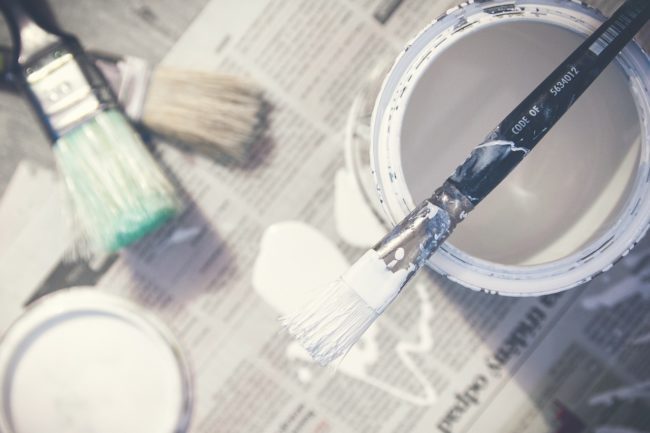
Whether you’re doing it to increase the value of your property or your home is in need of a makeover, it’s important to keep your property safe and secure during home improvements. When it’s time to get our your paintbrush and renovate your homestead, it’s only natural that you will get a build-up of dust and debris. Whether you’re adding a bathroom or fitting a brand-new kitchen, here are a few ways on how to protect your home during home improvements.
Getting Started
Before you start your home improvement project, you will need to remove everything from the room first. If you can, take away furniture, clothing, or decorations that would otherwise get in the way, ensuring the area is bare, spacious, and ready to be worked on. Clearing the area can not only reduce the risk of accidental damage but also eliminate the risk of your home becoming dirty or dusty.
Cover Your Furniture
If there is furniture in the room that’s simply not practical to remove, you should make sure it’s all covered up with plastic. Keeping your furniture covered will help to keep it in good condition and avoid any paint, dust, and debris from ruining your prized possessions. Trimaco has a range of protection products that can help with keeping all your furniture safe from any damage during a home renovation.
Isolate the Area
To prevent the risk of dust and debris from spreading throughout your home, it’s important that you seal off the area you’re working on. If you’re hiring outside help to carry out the project, don’t hesitate to ask questions about what precautions you should take. A contractor may use plastic sheeting on the doors to ensure the area is sealed off from the rest of the home.

Use the Path
For contractors to perform their job correctly, they will need to be able to get from A to B with ease (and without making too much of a mess!). To reduce the risk of mud getting into your home, you may want to consider building a path out of materials such as carpet scraps, or heavy canvas tarps. Once your contractor is done for the day, all you need to do is pick up the tarps, take them outside, and give them a shake to remove any mud or debris.
Move As Much Out As Possible
When tacking a significant home renovation project, many families choose to move out of their home entirely for the duration of the works, so you may want to think about whether or not this will be possible – how long is the work forecast to take? Do you have family nearby who might host you while your house is in the messiest stages? Could you manage to rent a small property nearby? It all depends on the scale and area of what you’re having done. Projects like a loft conversion are generally less disruptive to the rest of the house, as they are taking place on a new level above your head, although the season should always be taken into account when you’re doing anything to the roofing – being without a roof in mid-winter just won’t work, whereas it can be fairly liveable in the summer. If your renovation affects the existing facilities of the house – such as a bathroom remodel or having the kitchen extended or replaced, it will have more of an impact on daily life as well. Other projects may be a lot more liveable – for example, a garage conversion. You also have to weigh up your personal circumstances. Do you work from home? If so, you may not be able to accommodate the extra noise and disruption. Do you have young children? If so, being near the building works can be quite dangerous, especially should tools or machinery be around. Even if you decide not to leave, it can take the pressure off a little bit to move all your non-essential possessions into storage, especially as you might have to be shifting around what bits of the house you use, such as setting up a makeshift cooking area in the family room while the kitchen is replaced. Be realistic and make a plan.
Regular Cleaning
No matter how much preparation you’ve done before your home improvement project takes place, things can get messy very quickly, therefore, it’s important that you do regular cleaning throughout the home. Making sure that everything is removed and tidied up each night will also reduce the amount of dirt and debris there is in your property. Excess dust can become a problem fast, so knowing the right tips and tricks on how to get rid of dust from your property can be hugely beneficial.
Doing a home improvement project can become messy, so it’s important that your home is well protected throughout. To avoid dust and debris spreading through your property, make sure to cover your furniture, isolate the area you’re working on, as well as cleaning regularly to keep on top of things. Whether you’re planning to move, or you fancy a change, completing a home improvement can make a big difference to your property.



